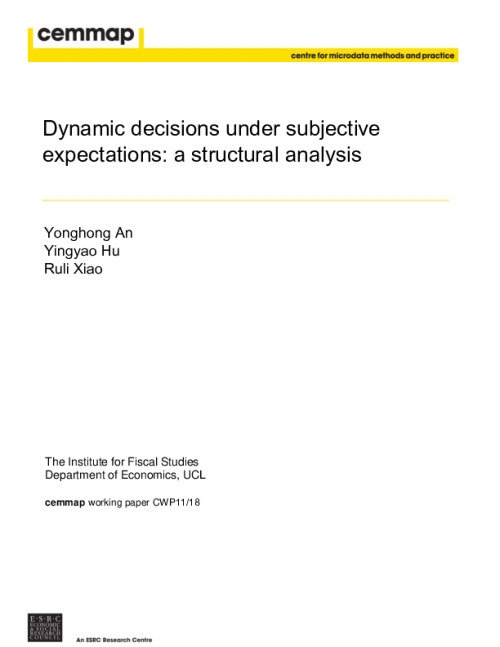This paper studies dynamic discrete choices by relaxing the assumption of rational expectations. That is, agents' subjective expectations about the state transition are unknown and allowed to differ from their objectively estimable counterparts. We show that agents' subjective expectations and preferences can be identi ed and estimated from the observed conditional choice probabilities in both finite and infi nite horizon cases. Our identi cation of subjective expectations is nonparametric and can be expressed as a closed-form function of the observed conditional choice probabilities. We estimate the model primitives using maximum likelihood estimation and illustrate the good performance of estimators using Monte Carlo experiments. We apply our model to Panel Study of Income Dynamics (PSID) data and analyze women's labor participation. We find systematic differences between agents' subjective expectations about their income transition from those under rational expectations. A counterfactual analysis suggests that women with low and medium incomes would increase the probability of working under rational expectations, and that the probability would decrease for women with high income.









